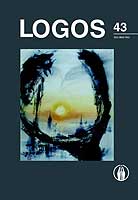F. KAFKA IR M. FOUCAULT: NUO ABSURDO IKI KALĖJIMO
Kafka and Foucault: From the Absurd to Prison
Author(s): Juozas ŽilionisSubject(s): Philosophy
Published by: Visuomeninė organizacija »LOGOS«
Keywords: education; punishment; absurd; prison; totalitarian system; justice
Summary/Abstract: The ideas of Kafka and Foucault concerning educational institutions and mechanisms are analysed in this article. Both thinkers write about the contradictions of human life which are insoluble to a person because of subjective and objective reasons. In many cases, the person is just a cog in the powerful machine of a totalitarian system, which is controlled by nobody. Sometimes he becomes its victim, who is not aware of his own crime and does not find any way of exculpation. In The Trial Kafka inquires into the nature and functioning of the anonymous, unlimited, brutal, and totally depersonalising power of a bureaucratic court of law. Foucault's analysis of the penitentiary system exposes the strategy of punitive power. Prison is the darkest part of society, within which the punitive power creates the space for the total appropriation of the human body and soul by the method of permanent watching. Within this space, punishment is applied as the means of treatment, and power predominates over man.
Journal: LOGOS - A Journal of Religion, Philosophy, Comparative Cultural Studies and Art
- Issue Year: 2005
- Issue No: 43
- Page Range: 134-140
- Page Count: 7
- Language: Lithuanian

